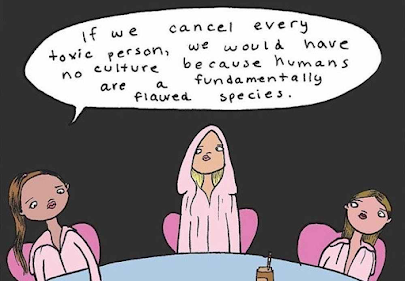Reflections from the field
- Get link
- X
- Other Apps
Influenced by the topics we were to explore this week, I paid extra attention to the students I am dealing with indirectly at my institution. I am working in a higher ed institution as an ID and support staff for faculty, where my work requires me to design and develop learning experiences in regard to an audience belonging to what is often referred to as Generation Z or Centennials. Hence, a current and frequent mistake I and faculty make is to assume that, because those learners are born in a very productive digital era, they are looking for more activities related to their supposed hectic connected life.
This week, we got to receive some feedback from students about a hybrid module we developed for freshmen. We were asking them how they feel about the hybrid mode, the interactive support and the collaborative activities organized online between face-to-face sessions. The first results we collected so far were in some way surprising as many students felt uncomfortable with the interactive materials. They struggled to navigate through the Geniallys and found that online courses took much more time than the 2-hour session initially planned for lectures. Also, some did not see the usefulness of collaborative activities asking them to produce their own content based on what they learned during the course. Overall, while the majority of students liked the flexibility of the hybrid mode, they were mostly looking for simpler ways of providing content, like videos of PowerPoints with audio explanations. And some were looking for a return to face-to-face instruction, because the Covid-19 experience has been traumatizing.
I must admit I was at first a bit upset about their feedback, as I really thought students from this generation were looking to learn in contexts similar to what they experience in their personal life. The truth is, at least based on what I observe at work, it's not the case.
This experience showed me that my doubts regarding the Digital Natives Theory were indeed justified. Being raised surrounded by new technologies and being used to communicating through a wide diversity of software does not mean you have an inherited susceptibility to learn with those tools. In the same way, produsage is not a systematic "superpower" that comes as a welcome package when you are born, which automatically makes you proficient in communicating, creating, or collaborating with other members of communities of learning or communities of practice.
The 5Cs inspired by the produsage philosophy are far from being instinctive for most people, regardless of their age. For me, this is mostly due to our tendency to think, act and make choices with an individual mindset and a personal agenda. There is no need to convince me about the benefits of learning and growing with and from other human beings because for me, this has been the more efficient way to know how to navigate through life so life. But I am most likely biased based on my work field and personal interests; and maybe maturity (and thus age in some way) has something to do with it as well. Understanding the benefits and importance of produsage is not instinctive and needs to be taught, both for instructional and professional purposes (and even for our personal life), regardless of our age, our technical proficiency or the way we use technologies and Web 2.0. The use of social media for work, education, personal communications, or just entertainment implies different philosophies that need to be spelled clearly with appropriate language and examples to fit with the diversity of profiles.
Being able to apply the concepts of this week's exploration in the field was unexpected and very enlightening. As a young ID, students' feedback gave me a hard but important lesson. Their perspectives showed me that the digital natives and immigrants theory was definitely not reliable and stressed the importance of analyzing an audience without preconceived ideas non-supported by verified studies. As a human being aiming to find meaning in the virtual aspect of my life, I now address my actions and intentions online with more preparation and post-reflection times, questioning myself in a less selfish way, on what I can bring to a community, what it brings to me, how it changes me and whether all these interactions still make me who I am, and not a subconscious contributor of the hive mind.
- Get link
- X
- Other Apps

Comments
Post a Comment